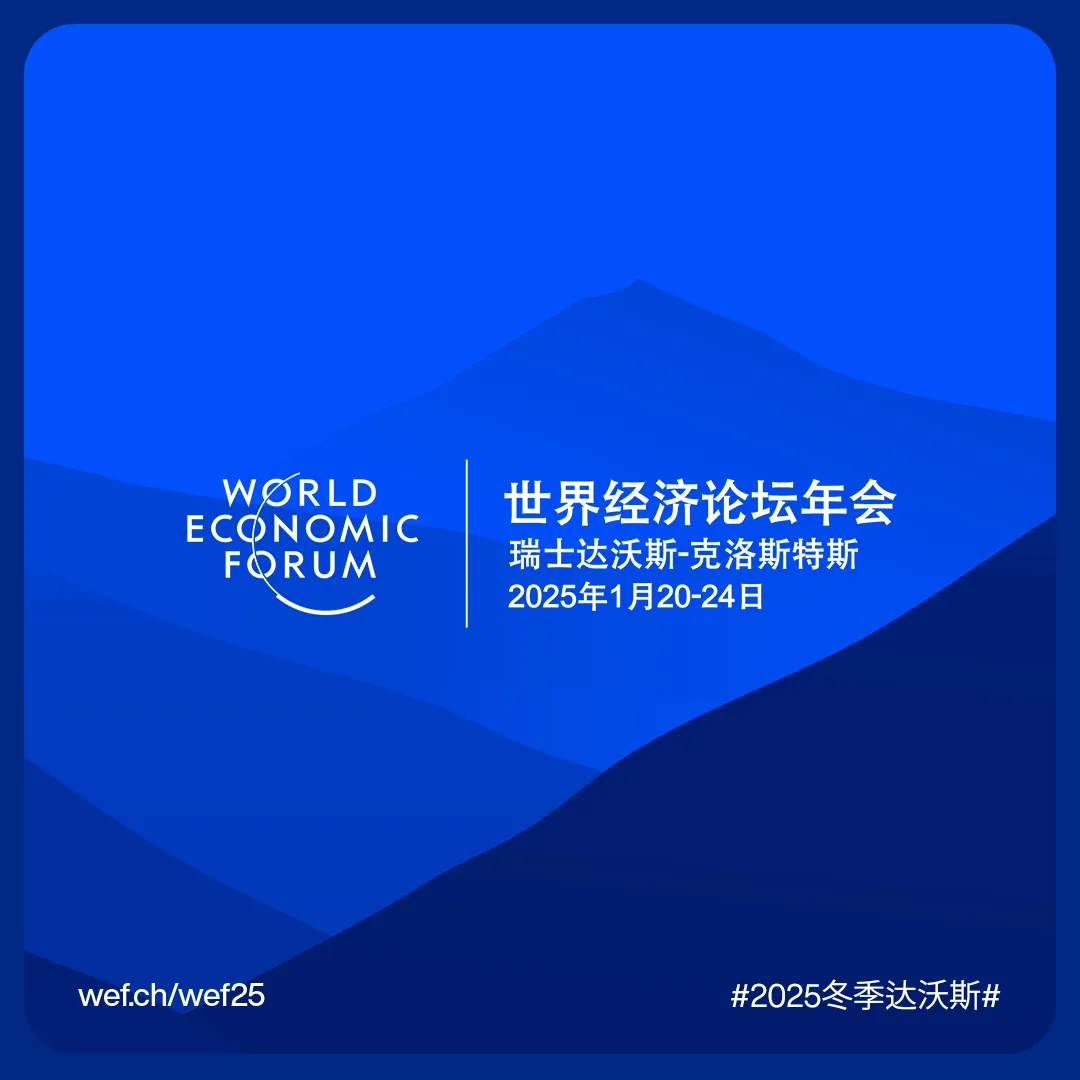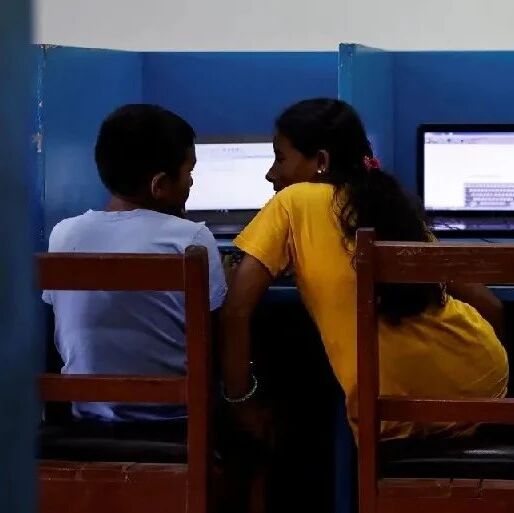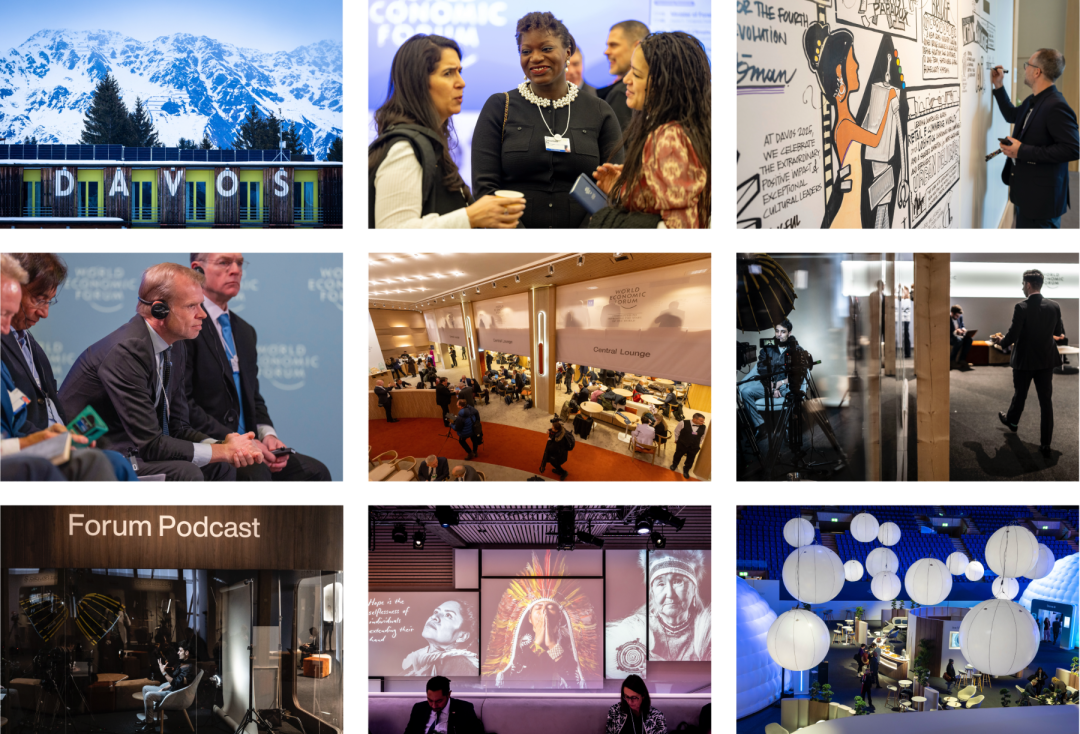
The 2025 World Economic Forum Annual Meeting will bring together nearly 3,000 leaders from more than 130 countries to discuss the theme "Collaboration in the Age of Intelligence," exploring strategies to tackle pressing global challenges and identifying emerging opportunities. As the global economy undergoes a profound paradigm shift, this year’s gathering will focus on how to reignite growth, harness cutting-edge technologies, and bolster societal and economic resilience.
This year's annual meeting agenda will be live-streamed in full on the World Economic Forum website, cn.weforum.org. Additionally, select sessions will be broadcast live via the WEF's official Weibo account. We encourage you to join the conversation on Weibo using the hashtag #2025WinterDavos#.The World Economic Forum's official WeChat account will also deliver daily summaries of the meeting and insights from featured guests.
What were the highlights of yesterday's agenda? Check out the excerpts we've prepared for you:
Decoding the Chinese Economy: Past and Future
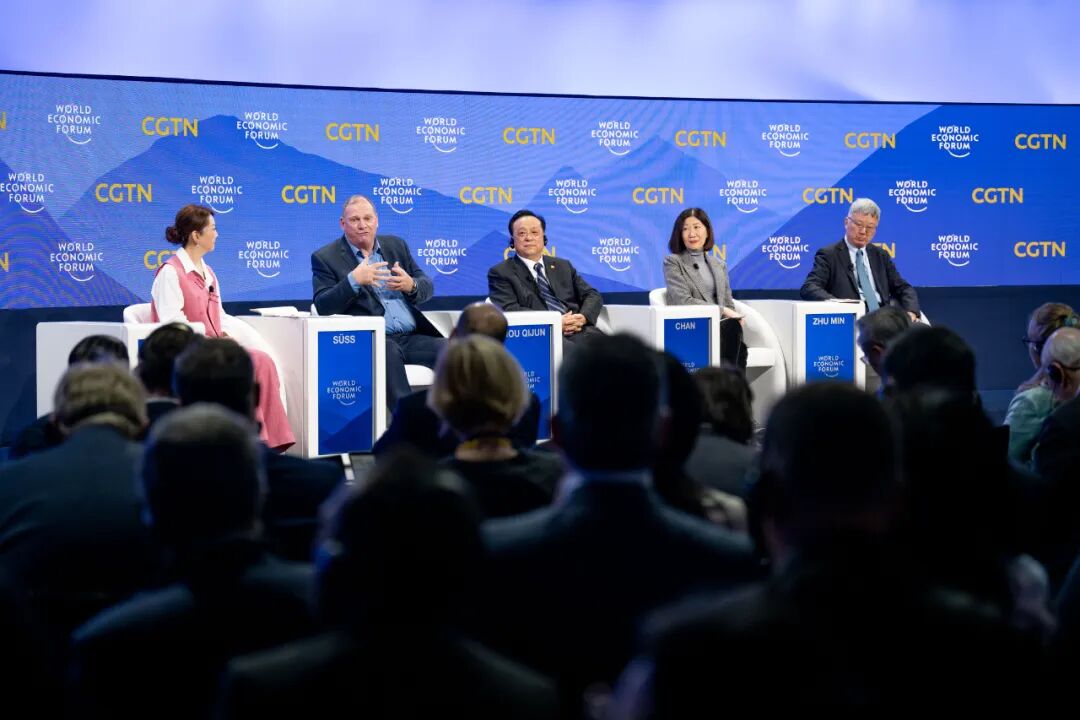
China has rolled out its largest economic stimulus package since 2008, once again drawing attention to its economic performance and potential. Looking ahead, policies aimed at developing cutting-edge industries and fostering new forms of productivity signal that future growth will increasingly hinge on technology-driven industrial strategies. How can China strike the right balance between short-term fiscal stimulus measures and forward-looking industrial policies to effectively achieve its growth objectives?
Tian Wei
Host of CGTN's "Wei Guan World" from China Global Television Network
The theme of this conference is "Decoding the Chinese Economy," and it will delve into China's economic issues—topics that have captured global attention. Over the past few months, China has rolled out a series of economic stimulus policies, which have already begun to yield initial results. Yet, there’s still great anticipation about China’s future policy directions and their potential impact. Key discussion points at this conference will include: - What is the true significance of these stimulus measures, especially in the context of China’s ongoing economic transformation, and how can they unlock the nation’s full growth potential? - And perhaps most importantly: Are Chinese consumers truly ramping up their spending? Experts attending the conference come from diverse sectors of the Chinese economy, ensuring attendees receive firsthand insights and thought-provoking perspectives on these critical topics.
Zhu Min
Senior Expert Advisory Committee Member of the China Center for International Economic Exchange, and Member of the World Economic Forum's Board
Trump's policies and rhetoric have often been unpredictable, making it impossible to foresee his next move. For instance, Trump recently announced plans to impose an additional 10% tariff on Chinese goods. Despite the significant trade surplus and ongoing technology transfers, China and the U.S. still have ample room for collaboration—cooperation that could yield greater benefits for both nations as well as the global economy. During Trump’s first term, U.S. tariffs on China surged dramatically—from 3.75% to 19.7%, causing China’s share of exports to the U.S. to drop from 21% to 15%. Looking ahead, China will focus on refining its domestic policies to address external pressures, emphasizing areas like consumer spending, manufacturing, digital transformation, green initiatives, and technological innovation. By prioritizing the domestic market, strengthening competitiveness, and ensuring economic stability, China is poised to navigate these challenges effectively.
Chen Yiting
Group Chief Executive Officer of Hong Kong Exchanges and Clearing Limited (HKEX)
The capital market acts as a barometer: following China's announcement of an economic stimulus package in September 2024, international investors responded swiftly. The capital markets reacted more strongly than expected, with trading volumes soaring to unprecedented levels. In the two weeks after the stimulus plan was unveiled, Hong Kong’s stock market repeatedly shattered its own trading volume records. Meanwhile, international investors poured significant capital into Chinese equities, while mainland Chinese retail investors also increasingly turned to the Hong Kong market. However, China currently boasts a relatively high household savings rate but remains constrained by weak consumer demand. In my view, restoring consumer confidence is the key—encouraging residents to channel their savings into either consumption or the capital markets could create a positive feedback loop, ultimately driving economic growth forward.
Hou Qijun
General Manager of China National Petroleum Corporation (CNPC)
The presentation outlined China National Petroleum Corporation's strategic plans, specific initiatives, and future direction in the context of the global energy transition. As the world shifts toward sustainable energy systems, CNPC is transforming from a traditional oil producer into a diversified energy company, expanding its business into areas such as oil, natural gas, geothermal energy, electricity, and hydrogen energy. As a developing nation, China continues to see rising energy demands driven by its ongoing industrialization and urbanization processes. In terms of concrete measures, China is ramping up investments in cutting-edge sectors like new energy and advanced materials—including pioneering technologies such as nuclear fusion—to accelerate its transition to green energy solutions. Recognizing the urgency of the moment, CNPC is also stepping up its strategic deployment and implementation efforts in the renewable energy space, with early successes already emerging.
Michael Süss
Oerlikon Executive Chairman
I spent several years working in China, contributing to various manufacturing sectors—including the construction of China’s gas- and coal-fired power plants. I’ve been deeply impressed by China’s economic growth, which is a direct result of global collaboration. China’s development has thrived precisely because of its dynamic engagement with cutting-edge technologies and robust economies in Europe and North America, while the global economy, in turn, has reaped significant benefits from China’s rapid expansion. Open borders undoubtedly foster vibrant technology exchanges—but it’s equally crucial to maintain a clear geopolitical awareness. After all, businesses worldwide must navigate this complex landscape by identifying innovative ways to collaborate amid fierce global competition. China’s manufacturing sector has made breathtakingly rapid progress, particularly in areas like AI-driven methodologies and 3D printing. Yet, despite its immense economic scale, the country continues to face challenges as it transitions toward more sustainable energy systems.
Click here to watch the conference replay
The Current State of AI Governance
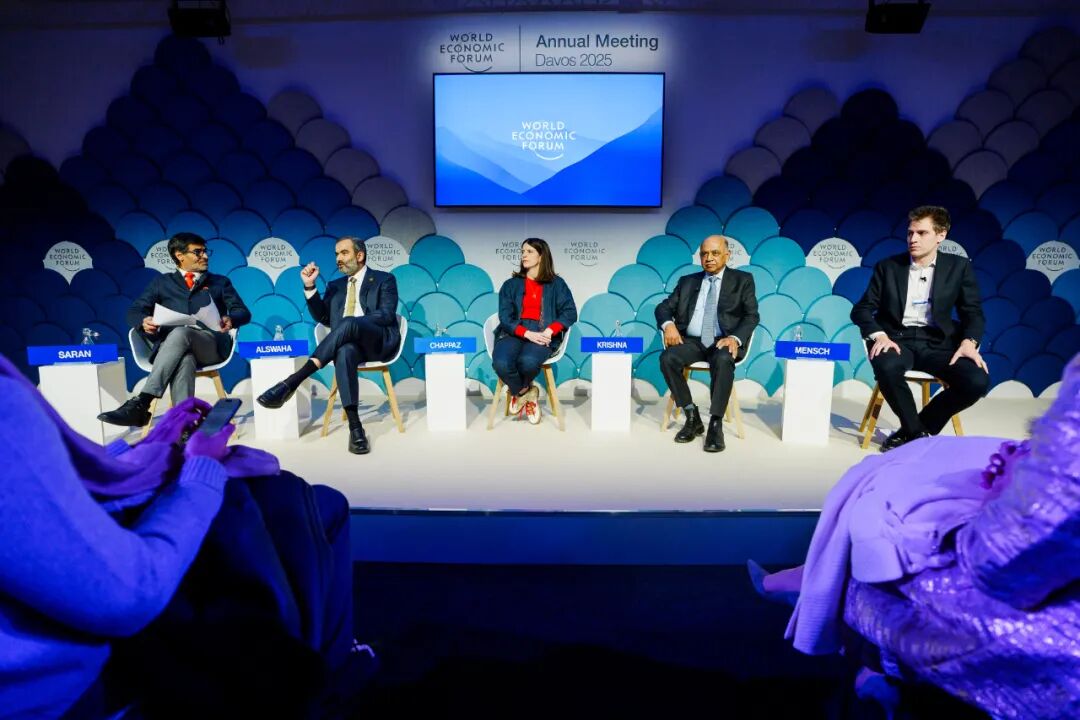
Despite the rapid proliferation of AI governance frameworks, fragmentation and a lack of coordination continue to hinder the responsible innovation, development, and deployment of AI technologies. Given AI's global impact, how can we bridge these governance gaps and foster the adoption of collaborative, interoperable approaches?
Samir Saran
Chairman of the Observer Research Foundation
As one of today's most exciting fields, AI holds immense potential to boost economies—but it also risks exacerbating global inequalities. Countries have adopted diverse governance approaches and operational principles in response to AI’s rapid advancement. While AI is seen as a powerful tool for tackling critical challenges, it has simultaneously raised concerns about the excessive concentration of power. Ultimately, the decisions made by governments, businesses, and individuals in shaping AI governance will profoundly influence the trajectory of development over the coming decades.
Abdullah·Svaha
Saudi Arabia's Minister of Communications and Information Technology
Human society is transitioning from the digital age into the intelligent era, facing three major gaps: in computing power, algorithms, and data. As a global leader in energy, Saudi Arabia is collaborating with international partners such as France and IBM, working together to build a more inclusive and innovative global AI governance framework. This collaboration involves sharing computing resources, developing both large and small-scale models, and advancing generative AI applications—all aimed at ensuring that AI technology benefits humanity while fostering sustainable development for our planet.
Clara Shapaz
The French Ministerial Representative in charge of AI and Digital Affairs at the Ministry of Economy, Finance, Industry, and Digital Sovereignty
AI can deliver numerous positive outcomes, offering ways to reduce energy consumption. Governments should establish secure frameworks through regulations, fostering collaboration among businesses while ensuring that policies don’t stifle innovation. It’s crucial for governments to provide companies with the support they need to seize global opportunities and develop genuine, impactful solutions. France’s recently promoted AI Act underscores the importance of accelerating development via a unified framework, safeguarding critical infrastructure, securing funding, and leveraging data to empower innovators.
Arvind Krishna
Chairman and CEO of IBM
A "light-touch" regulatory approach should be adopted to foster innovation while maintaining the openness of AI technologies. I recommend implementing a risk-based, tiered regulatory framework: applying minimal intervention to low-risk applications, and stepping up controls only when extreme risks—such as those involving national security or public safety—are at stake. Meanwhile, model developers should assume responsibility for their products by clearly outlining the safety measures they’ve put in place.
Arthur Münch
Co-founder and CEO of Mistral AI
The development of AI technology should not be dominated by a handful of tech giants—but instead, it requires a decentralized approach that empowers more participants to access and innovate. By leveraging open-source models and making thoughtful technology choices, AI innovation can be scaled more broadly across the board. In terms of governance, the focus should shift toward evaluating and controlling AI systems at the application level, ensuring they operate as intended and are thoroughly validated for effectiveness.
Click here to watch the conference replay
Can the financial system withstand the next crisis?
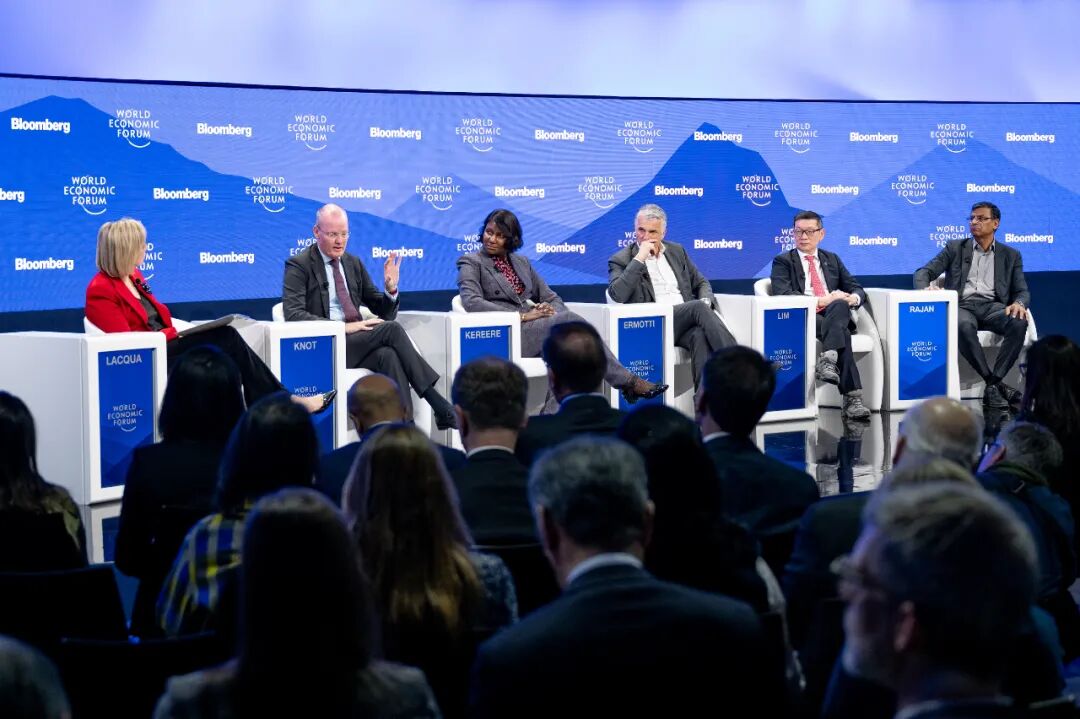
Although the global financial system has demonstrated resilience in the face of recent shocks, it is now grappling with a range of challenges, including rapid technological advancements, escalating geopolitical tensions, and diverging monetary policies. What are the key factors underpinning this relatively stable financial system, and what lessons can we learn to strengthen its ability to withstand future disruptions?
Suzan Kereere
PayPal's Global Market President
Due to liquidity being concentrated in large banks, many small businesses find themselves stuck in a single-threaded predicament. When we think about resilience, we must also consider this group of people—many of whom remain underserved—in the same way we look at broader communities facing similar challenges. The next shock may bring difficulties, but history shows that every hardship has ultimately given rise to innovation. And if an innovator hopes to sustain innovation over the long term, they’ll need robust regulation—a foundation essential for building trust and ensuring sustainability.
Raghuram G. Rajan
Distinguished Service Professor of Finance, Booth School of Business, University of Chicago
When examining the financial system, we should focus on two key areas: solvency and liquidity. The Federal Reserve is increasingly supporting the global system, but the real question is: what are the existing gaps? And can the Fed help bridge those gaps? Rather than thinking too creatively about certain issues, we should instead remain cautious about the debt levels in many countries today.
Sergio Ermotti
UBS Group Chief Executive Officer
Some of the regulatory measures currently being implemented may not be widely popular. Ensuring that large banks can continue operating smoothly is one solution for managing crises. We need to carefully consider how to fine-tune existing regulations in order to foster growth. By establishing requirements tied to specific prohibitions, we aim to create a truly level playing field—but this, too, is where regulators must strike a delicate balance.
Klaas Knott
Governor of the Dutch Central Bank
Many of us didn’t anticipate the shocks the financial system would have to weather over the past 10 to 15 years. Looking ahead to future disruptions, I’d like to emphasize resilience even more. We need to build resilience within the financial system—because while we can’t predict exactly where the next shock will strike, history has shown us time and again that leverage tends to unravel unexpectedly in areas outside the traditional banking sector. These issues are inevitable, but we must ensure they don’t trigger a powerful ripple effect throughout the financial system.
Lin Zhaojie
Chief Executive Officer of Singapore Government Investment Corporation
ContainHere are three key points to keep in mind. First, clearly identify exactly what makes the financial system vulnerable. Second, while negative shocks are difficult to predict, indicators suggest that an economic downturn could become a real possibility as fiscal resources dwindle. Finally, remain vigilant against complacency, as this often becomes a source of division. There’s growing concern that monetary policies may diverge, potentially triggering financial stress—or even a full-blown crisis. Yet, it’s important to remember that each economy naturally tends to adopt distinct monetary approaches based on its unique challenges. The real issue lies in whether these policies are truly aligned with the specific circumstances they’re meant to address.
Click here to watch the conference replay
Special address by United Nations Secretary-General António Guterres
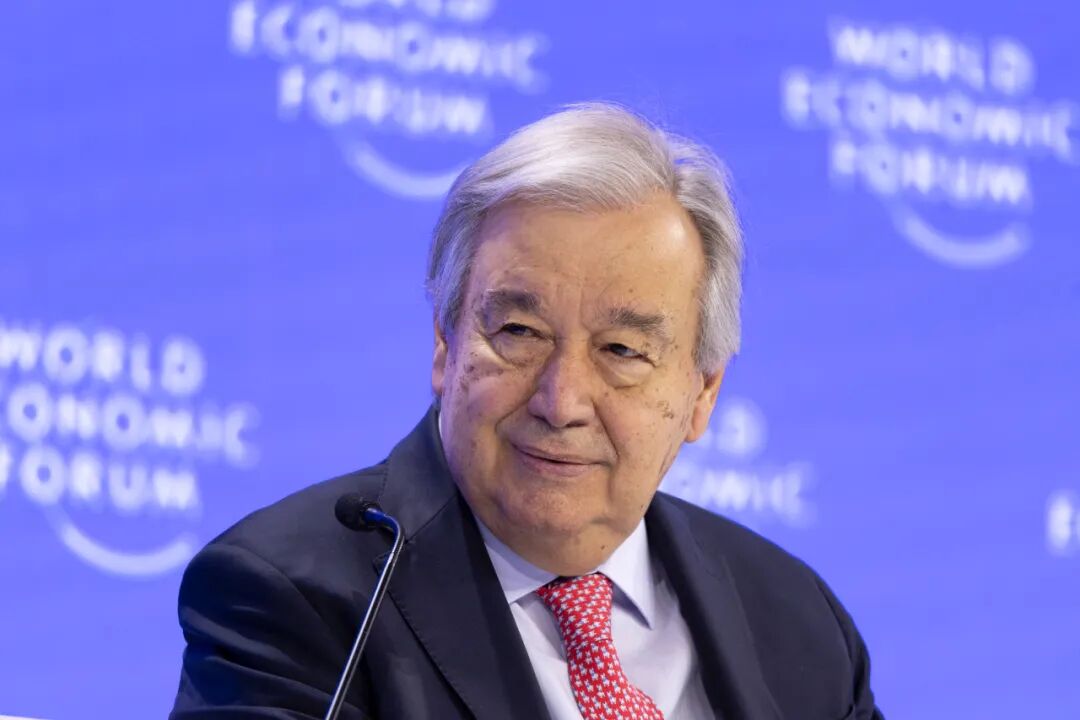
Click here to watch the conference replay
The Dawn of Artificial General Intelligence?
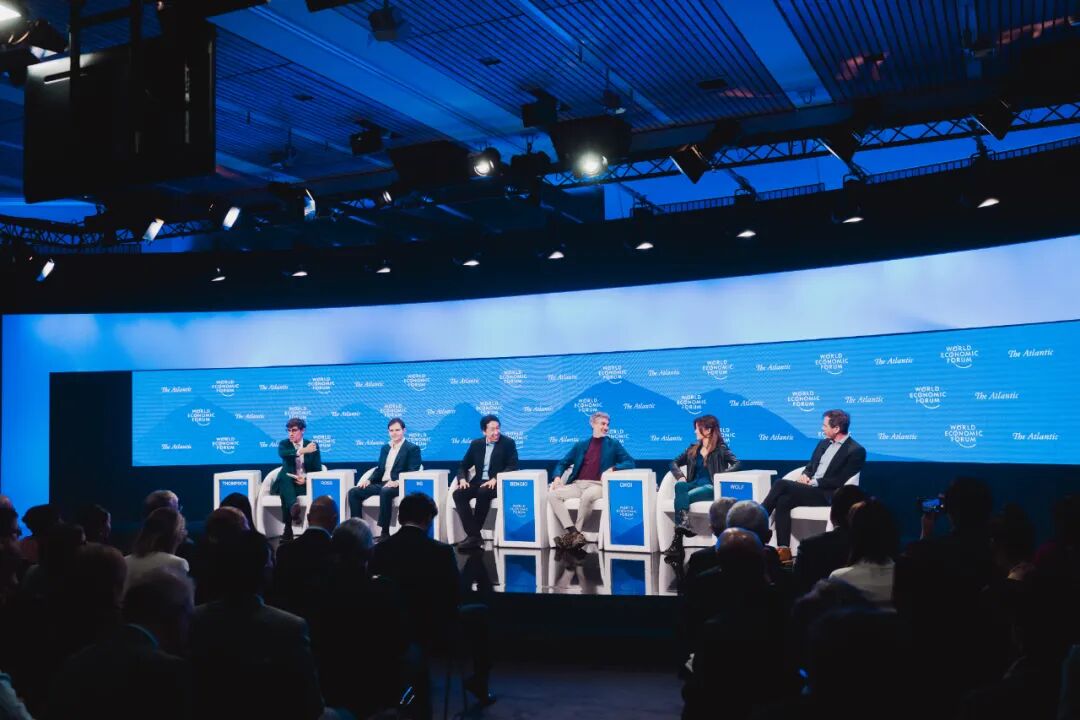
Artificial General Intelligence (AGI) could potentially possess the versatile capabilities to reason, learn, and innovate across any task. Yet, as concerns grow over issues like job displacement, surveillance, and deepfakes, the critical question remains: Will AGI ultimately become a force for progress—or will it pose a fundamental threat to the very fabric of human society?
Nicholas Thompson
CEO of The Atlantic
Regarding the definition of AGI, there is a debate within the industry over whether "a machine should be capable of performing any intellectual task that a human can do." Currently, key issues to focus on include comparing machine intelligence with human intelligence, exploring the development pathways for AGI, and examining the implications of the post-AGI era. The notion that whoever achieves AGI first will dominate everything may be misleading, as it doesn’t align with the actual trajectory of AI development.
Jonathan Ross
Groq Founder and CEO
While the pursuit of AGI has driven AI advancements, true breakthroughs often emerge from tackling specific, real-world problems. The definition of "intelligence" itself has evolved dramatically over time—ranging from simple calculators to mastering games like chess and Go, and now extending to sophisticated language processing. Today's AI excels at intuitively selecting the next word—but when it comes to systematic reasoning, there’s still significant room for improvement. This remains a key focus in the ongoing development of AI.
Joshua Bengio
Professor at McGill University
The human brain is essentially a biological machine, while AI, as a digital machine, boasts unique advantages: it can process far more data, master multiple languages, and enable communication between machines at speeds that vastly surpass human capabilities. Even though AI excels in certain areas while remaining relatively mediocre in others, this uneven development precisely highlights AI’s defining characteristic as an "unconventional form of intelligence."
Andrew Ng
LandingAI Executive Chairman
While AI development will inevitably be constrained by the laws of physics, its potential remains incredibly high. We should view AI as a tool rather than an entity with autonomous consciousness, continuously refining it to enhance safety. AI has the power to make intelligent services widely accessible and affordable. I urge both China and the West to collaborate actively in the open-source AI space, ensuring that no single dominant force emerges.
Choi Ye-jin
Stanford University professor and senior researcher
Currently, machine learning approaches lack initiative, resulting in an intelligence form that differs significantly from true AI. While AI excels in tackling certain highly complex problems, its capabilities remain limited by human knowledge available on the internet and by the programmable validation environments it operates within. As a result, the current technological path may fall short of achieving truly general-purpose AI.
Thomas Wolfe
Co-founder and Chief Science Officer of Hugging Face
The intelligence level of AI should be viewed as a gradual progression—from low to high—rather than a sudden leap toward the threshold of artificial general intelligence. I recommend implementing stringent regulations for cutting-edge, high-performance AI models, while allowing more freedom in the use of simpler, specialized AI systems tailored to specific tasks. Meanwhile, AI safety research institutions established by various countries will play a critical role in managing and overseeing these advanced, high-performance AI models.
Click here to watch the conference replay
ASEAN: Unity is Strength
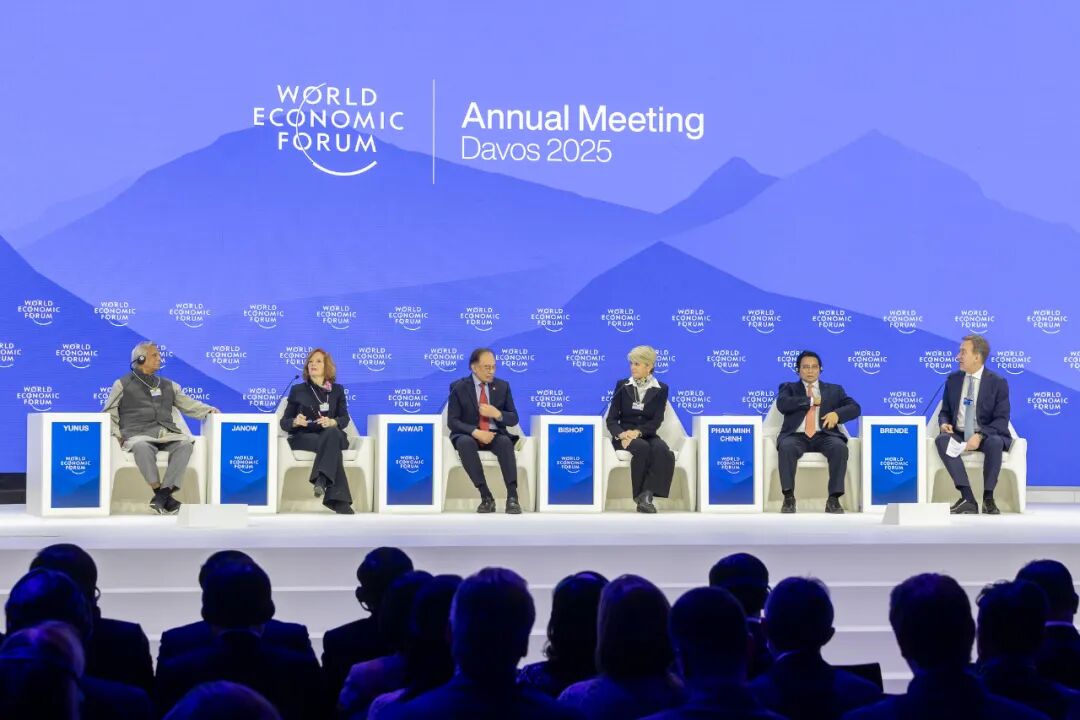
Southeast Asia is steadily leading and pioneering a new era of productivity development and growth. Join us at this conference to hear from leaders of the Association of Southeast Asian Nations (ASEAN), who will share their vision and aspirations for fostering regional peace and prosperity.
Borge Brende
President and CEO of the World Economic Forum
Southeast Asia is one of the fastest-growing regions in the world and is now transitioning into the smart era. Digital trade and service trade are expanding at three times the pace of merchandise trade, making them a key driver of growth. ASEAN has already begun reshaping its economic direction, with Vietnam emerging as the fastest-growing economy, while other nations are also working hard to enhance their competitiveness. The World Economic Forum has established Fourth Industrial Revolution centers in Malaysia and Vietnam, fostering the adoption of cutting-edge technologies like generative AI and supporting local development efforts.
Anwar Ibrahim
Prime Minister of Malaysia
The trust and friendship among ASEAN leaders serve as an excellent example, fostering a relationship that enables the bloc to address complex issues in a frank and constructive manner. ASEAN actively promotes energy connectivity while placing strong emphasis on tackling climate challenges. In addition, the organization is proactively advancing mutual understanding and collaboration among regional nations in digital fields such as artificial intelligence. At the heart of ASEAN’s strength lies its commitment to building trust and fostering cooperation. Malaysia and other ASEAN countries are actively attracting foreign investments from the U.S., Europe, China, and more, while maintaining close partnerships with nations like Australia and India. Yet at the same time, ASEAN members must remain independent and avoid being forced to choose sides between major global powers.
Pham Minh Chinh
Vietnamese Prime Minister
ASEAN needs to set higher goals and embrace a broader vision—raising growth targets to push beyond its current limits, all while grounding these ambitions in science, technology, innovation, and digital transformation. The intelligent era should be one of peace, free from war and conflict. Economically, we must strive for comprehensive and inclusive growth. Culturally, ASEAN nations should celebrate and promote their unique identities and distinctive characteristics. And environmentally, we must harness natural resources sustainably, fostering clean, green ecosystems that support long-term development.
Merit Janow
Chairman of Mastercard
ASEAN is a dynamic region with rapid economic growth, cutting-edge technology, and a youthful demographic—making it a key player in both the global and regional economies, as well as an important market for U.S. exports. Since the 1960s, ASEAN has consistently championed open regionalism and economic cooperation. The bloc has continuously explored and advanced initiatives aimed at fostering trade and investment integration across its member states. Particularly impressive are the ongoing negotiations for an ASEAN Digital Economy Framework Agreement, which, if finalized, would become the region’s first-ever comprehensive digital economy framework—holding significant potential to drive economic growth not only within ASEAN but also on a global scale.
Julie Bishop
UN Secretary-General's Special Envoy on Myanmar
Myanmar is a member of ASEAN and occupies a strategically vital location, bordering China, India, Bangladesh, and Thailand. The country is rich in natural resources and boasts a young, well-educated population—but it has long been plagued by civil conflict. ASEAN has played a crucial role in addressing the Myanmar crisis, forging the "Five-Point Consensus" that has helped alleviate the nation’s humanitarian challenges. Additionally, ASEAN is actively collaborating with the United Nations, which has deployed a special envoy to work alongside ASEAN’s envoy, aiming to find solutions to Myanmar’s internal issues that can be led and owned by the country itself. ASEAN has also been deeply involved in humanitarian support efforts, with its Humanitarian Coordination Center playing a key role in easing the crisis.
Muhammad Yunus
Chief Advisor to Bangladesh's Interim Government
Currently, the banking system primarily serves individuals with ample financial resources, but it should be redesigned to better cater to everyday people. Microfinance emerges as a transformative solution to this challenge, aiming to disrupt the traditional banking model and deliver financial services to everyone—regardless of their economic status. The global trend toward wealth concentration poses significant risks, underscoring the urgent need for innovative approaches that leverage banking system reforms to ensure financial inclusion for all. This forward-thinking mindset should also become an integral part of ASEAN’s strategic vision. Moreover, ASEAN must champion entrepreneurial spirit, seamlessly integrating economic growth with social responsibility. By embracing the ASEAN framework, we can drive sustainable, inclusive progress that sets a global example for others to follow.
Click here to watch the conference replay
Accelerate the deployment of advanced energy technologies

Multiple challenges—such as the level of technological readiness, market demand, financial support, and public acceptance—are hindering the widespread adoption and deployment of advanced clean energy technologies like small modular reactors, geothermal energy, and long-term energy storage. To accelerate the rollout of these technologies, what specific areas need to be addressed?
Arunabha Ghosh
Founder and CEO of the Energy, Environment, and Water Resources Committee
We need to focus on how to design an innovative ecosystem, considering how to share risks together and accelerate the deployment of cutting-edge technologies. First, we should discuss how to define "advanced." Second, we must explore ways to ensure sufficient funding to support decarbonization efforts and promote the widespread adoption of clean energy.
Sophie Hermans
Dutch Deputy Prime Minister and Minister for Climate Policy and Green Growth
First, we need to stimulate public demand for technology. Second, collaboration between the public and private sectors is essential—neither side can tackle challenges like financing or regulation on its own. Finally, leaders must demonstrate courage during this period of transformation. Although we’re currently facing difficulties, we should firmly believe that we can make the right decisions.
Bob Mumgaard
Co-founder and CEO of Commonwealth Fusion Systems
Previously, we’ve always viewed energy from a resource perspective—but now, technology is gradually becoming the core of everything. We don’t know exactly when or how quickly these technologies will emerge and be deployed at scale, so we need to anticipate where talent should be directed. When it comes to managing technological innovation, people often fall into rigid mindsets, assuming they must stick to conventional approaches and rely on established strategies. Yet in reality, there’s vast room for creativity and breakthroughs.
Xin Bao'an
Chairman of the Global Energy Interconnection Development and Cooperation Organization
Energy innovation requires time—especially when it comes to large-scale deployment and application, which demand both market testing and patience. The driving force behind innovation stems from the challenges posed by pressing issues and the growing demands of the market. Moreover, its continuous iteration and advancement rely heavily on cutting-edge talent, robust financial backing, and widespread societal recognition. China is playing a pivotal role in advancing new energy technologies, delivering high-quality, safe, reliable, and cost-effective renewable energy solutions to the global community.
Kimberly Boudreau
Director of Lawrence Livermore National Laboratory
Many ongoing studies focused on technological innovation have already proven successful from a scientific standpoint, but we need to determine whether they are economically viable. Innovative tools like supercomputers are also driving advancements in energy technology, while artificial intelligence, with its vastly superior computational power compared to humans, is enabling researchers to conduct experiments more efficiently, accelerate data collection, and fundamentally transform the way we manufacture.
Hans Kobler
Founder of Energy Impact Partners
We need to determine the economic viability of these technologies. Regulation also plays a crucial role, though this area certainly comes with its own set of challenges. Right now, we have funding and plenty of innovative new products—but costs remain high, and we haven’t yet reached the balance point where they become affordable for consumers. When it comes to managing technological innovation, people often fall into rigid mindsets, assuming that sticking to conventional approaches and relying on established strategies is the only way forward. Yet in reality, there’s vast room for creativity and breakthroughs.
Click here to watch the conference replay
A special address by Spanish Prime Minister Pedro Sánchez
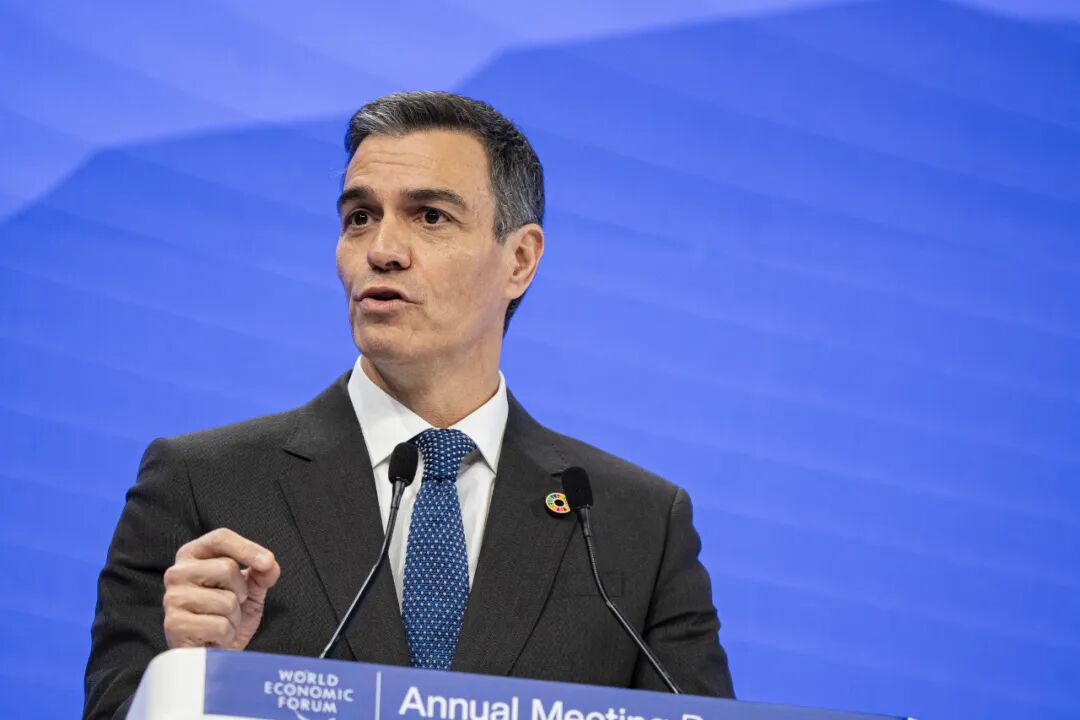
Spanish Prime Minister Pedro Sánchez stated,While social media brings connectivity and diversity, it has also led to the concentration of vast amounts of real power and wealth in the hands of a small elite—often at the expense of the public, mental health, and democracy itself. He criticized tech oligarchs for leveraging social platforms to consolidate power and advance their political agendas, warning that this trend is steadily eroding democratic principles. He called for safeguarding and regulating social media in much the same way we protect and manage ocean resources, urging global action to uphold democratic values and ensure social justice.
Click to watch the conference replay
Surpassing the Crisis: Unleashing Europe's Potential
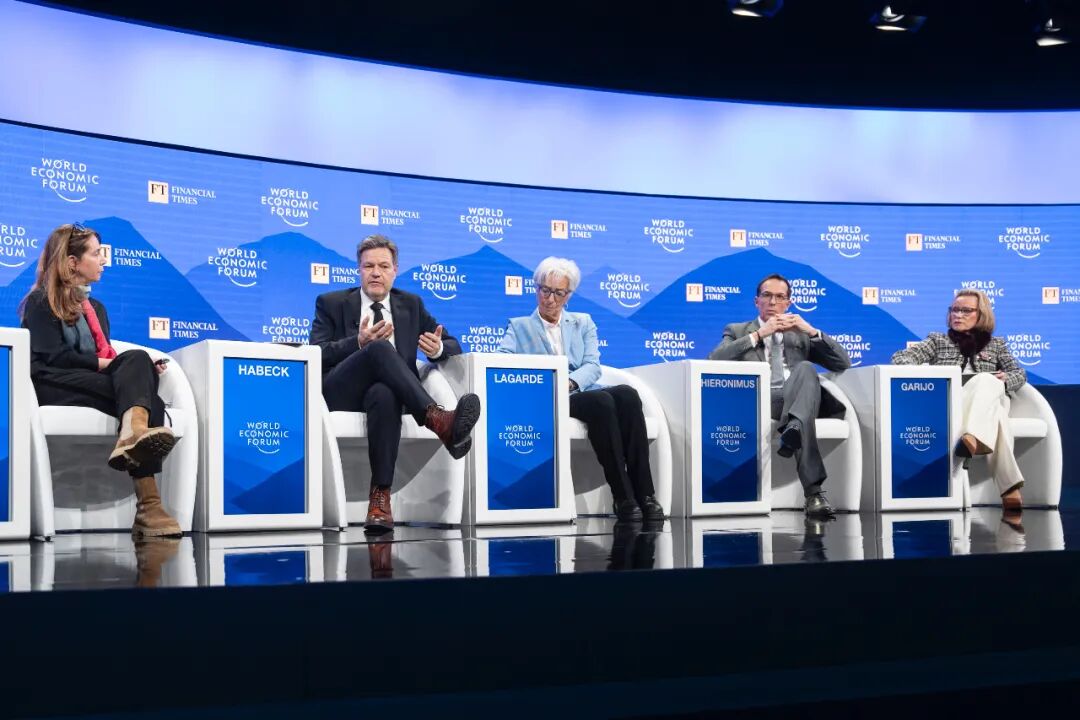
Recent landmark EU economic reports have bluntly highlighted the region’s economic vulnerabilities, warning that Europe faces a scenario of "slow, painful stagnation." Based on current productivity and demographic trends, Europe’s economic output is projected to remain flat by 2050 compared to today’s levels.Given that much of the power to rectify the situation lies in the hands of national governments, how should leaders strive to meet this challenge?
Rula Khalaf
Editor-in-Chief of the Financial Times
Data from Mario Draghi's report on the European economy reveals that, since 2002, the U.S. has seen real disposable income per capita grow at nearly twice the rate of the EU. Among the world’s top 50 tech companies, only four are based in Europe. Moreover, if the EU’s economic growth remains at its current average pace—similar to what it has experienced since 2015—it will barely manage to prevent its GDP from declining by 2050. Over the past 50 years, the EU has failed to produce a single startup valued at more than €100 billion, whereas the U.S. has given rise to six companies worth over €1 trillion during the same period.
Christine Lagarde
President of the European Central Bank
Facing the crisis, Europe has ample talent, funding, and innovation at its disposal. Currently, Europe produces nearly as many STEM graduates per million people as the U.S., and its patent applications are also almost on par with America—both of these areas are critical to shaping the future. However, greater momentum and a fundamental shift are needed when it comes to taking decisive action and implementing the necessary measures. If Europe can truly achieve a single market, it will significantly reduce internal trade barriers. Therefore, Europe should kickstart reforms from within, swiftly dismantling obstacles rooted in history, inertia, and bureaucratic red tape—and strive relentlessly for even better outcomes.
Robert Habeck
Germany's Federal Vice-Chancellor and Minister for Economic Affairs and Climate Protection
The German economic model requires a comprehensive overhaul, and it’s also believed that Europe—as well as Germany—still has significant untapped growth potential. Unfortunately, investment in Europe is sometimes overly conservative, often leaving German startups struggling to scale due to a lack of venture capital during their critical expansion phases. Germany is currently grappling with a structural crisis rather than short-term economic fluctuations. Historically, the country relied heavily on cheap natural gas from Russia and robust export growth fueled by open international markets. However, with disruptions in Russian energy supplies and shifting global market dynamics, this familiar economic model has become unsustainable.
Ge Lihe
Chairman of the Executive Board and CEO of Merck Group
Europe’s current challenges are unrelated to the recent U.S. election—issues like how to enhance Europe’s competitiveness have long been on the agenda. While some problems stem from excessive regulation, that’s certainly not the sole reason. Europe’s lag in technologies such as artificial intelligence is primarily due to market fragmentation and insufficient investment. However, shifts in U.S. policy could indeed spur Europe to accelerate its own efforts even further. To stay competitive, Europe should streamline its regulatory policies, adopting clearer, more predictable frameworks that reduce bureaucratic delays—particularly in areas like data protection—while actively supporting technological innovation rather than imposing unnecessary restrictions.
Nicolas Hieronimus
L'Oréal CEO
Europe boasts strong talent and innovative capabilities, giving it the potential to thrive in global competition—but the key lies in investing in innovation. More than ever, Europe needs to embrace its role as an innovator rather than a regulator. European nations must strengthen their unity and collaboration, as teamwork is essential for unlocking Europe’s unique strengths. Above all, Europe should focus on nurturing and advancing industries that can set global trends—such as bioengineering, biotechnology innovation, and sustainable development.
Click here to watch the conference replay
ConversationPalestinian Minister of State for Foreign Affairs, Farasin
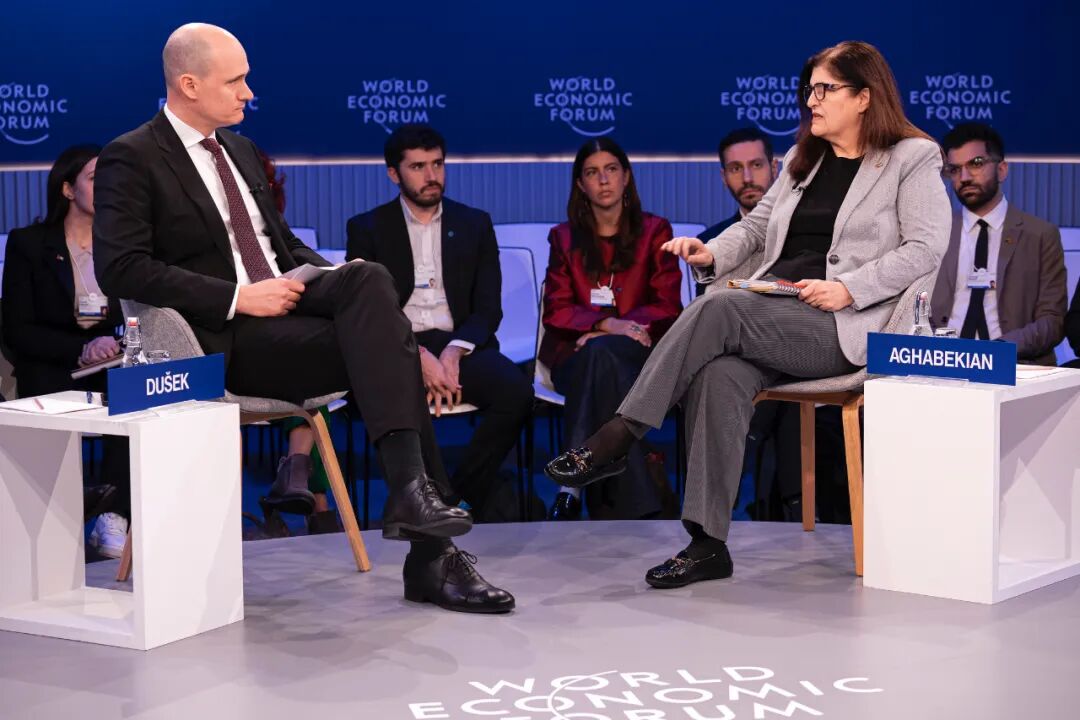
The humanitarian crisis in Gaza and the broader Middle East situation have consistently been key topics on the forum's agenda. The immediate priority is to explore ways to extend the ceasefire agreement, alleviate the humanitarian crisis, and further de-escalate tensions in the region.Palestinian Minister of State for Foreign Affairs, Farsin, statedCurrently, Gaza faces immense challenges, and the ceasefire has created an opportunity for recovery and much-needed aid. Gaza’s infrastructure has been almost entirely destroyed, with critical damage to its healthcare, education, and water-and-electricity systems. Residents are in urgent need of rescue efforts as well as sustained, long-term support. Rebuilding the region will require comprehensive backing from the international community— including robust logistical assistance—to ensure that aid reaches every resident and is effectively delivered.
Click here to watch the conference replay
Nature and Current Climate Conditions

This year marks the 10th anniversary of the historic Paris Agreement—but the world is still far from on track to meet its goals. While momentum is building to decarbonize economies, build nature-based solutions, and establish critical financing mechanisms, we still lack the speed, scale, and urgency needed to avert the looming crisis.During this critical decade of action, what types of innovation and partnerships do we need to turn crises into opportunities—and drive progress for both humanity and the planet?
Liang Jinhui
Executive Director of the World Economic Forum
Speech contentLast year was the hottest on record, with extreme weather and natural disasters relentlessly threatening the very foundations of our homes, livelihoods, and cherished natural environments. Yet globally, only 10% of companies have taken meaningful, actionable steps—far short of the scale and speed needed to address this urgent crisis. This conference will focus on how governments and businesses can respond more effectively and swiftly to future crises and uncertainties, ensuring a stronger, more resilient path forward.
Al Gore
U.S. Vice President (1993–2001), Chairman and Co-founder of U.S. Generations Investment Management Company
In the energy transition, 85% of the funding comes from the private sector, with most of the money flowing to the U.S. and Europe. Meanwhile, developing countries continue to face challenges in accessing these funds, largely due to high interest rates on loans. That’s why we still need more financial support from governments. Moreover, investing in clean energy can help generate more job opportunities. What’s currently lacking is political will—but after all, this very concept of renewable energy is itself a renewable resource.
Salil Parekh
Chief Executive Officer and Managing Director of Infosys Limited
First, we should make greater use of data. Second, we must maximize the efficiency of waste utilization. Third, exploring the supply chain and leveraging data are crucial—enabling real-time analysis that allows for timely control of emission levels. Finally, we should also advance the application of high-tech tools to better understand current usage and emission patterns, while predicting future trends and their potential impact on the global climate.
Gao Haichun
Co-Chairman of LONGi Green Energy Technology Co., Ltd.
Driven by technological advancements, energy security, cost efficiency, and sustainability are no longer mutually exclusive. As a result, a strong economic foundation can fundamentally transform the broader landscape of the energy transition. Yet, an economic base alone isn’t enough—after all, the green transition demands a revolutionary overhaul of infrastructure. Moreover, the energy transition also touches on fundamental aspects of human dignity, safety, and opportunity for development.
Andrew Forrest
Fortescue Executive Chairman and Founder
From a practical standpoint, the economic foundation is the prerequisite for accomplishing everything—after all, we’re not running a charity. As we move toward phasing out fossil fuels, employees are already asking: "How exactly can we make this goal a reality?" In my view, one effective approach would be to set a clear timeline—and even advance it slightly—while creating a sense of challenge that motivates everyone to work together and achieve this ambitious target.
Muhammad Yunus
Chief Advisor to Bangladesh's Interim Government
In Bangladesh, we’ve brought solar power to the most impoverished communities, giving us immense confidence and hope. We aim to build a new civilization that transforms both our lifestyles and mindsets. After all, without changing the way we live, we won’t be able to alter the current state of our planet. In particular, we need to empower young people—helping them understand critical issues like environmental challenges and wealth inequality—and encouraging them to come together, fostering open dialogue about these pressing concerns. Together, let’s move forward step by step each day, turning our aspirations into tangible realities.
Pedro Sánchez
Spanish Prime Minister
Issues such as climate change, sustainable development, poverty alleviation, and conflict all depend on multilateral cooperation. Development financing is not just an economic term related to debt relief and capital mobilization—it also serves as a critical precondition for maintaining stability in the surrounding global order. Moreover, if we want to win the "war" of politics, we must secure broad societal support. And to achieve this goal, the green transition must be both equitable and just.
Click here to watch the conference replay
Feel free to share this in your WeChat Moments; please leave a comment at the end of the post or on our official account if you’d like to republish.
Text content: Wu Yimeng, Sun Qian, Di Chenjing | Edited by: Wang Can
The World Economic Forum is an independent and neutral platform dedicated to bringing together diverse perspectives to discuss critical global, regional, and industry-specific issues.
Follow us on Weibo, WeChat Video Accounts, Douyin, and Xiaohongshu!
"World Economic Forum"
